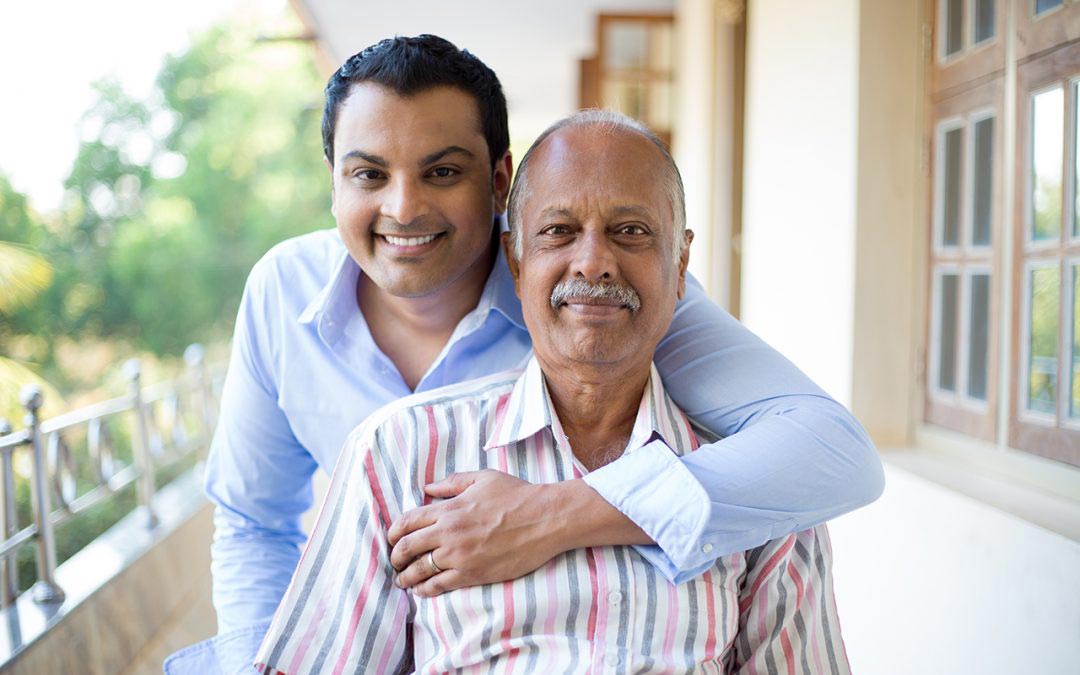Feeling good about giving


It’s the season for giving and besides getting gifts for our loved ones, many of us will also be giving to charities we usually support.
But over the years, if you are wondering whether you are merely writing a cheque or really helping the needy, perhaps this is a good time to take stock. Gain a better understanding of who you are helping and the kind of difference you are making. Many of CFS’ donors start with this thought, and I am happy to share some tips that can help make your year-end giving more meaningful.
Know your own motivations and resources
Consider your motivations and expectations when you donate. What prompts you to donate? What sort of impact are you expecting? How quickly do you want to see results? How much time can you set aside to learn more about a cause or social issue? These questions can help you to gain greater clarity on why you give, and whether your expectations are realistic.
If apart from donating, you would also like to volunteer, assess your ability to deliver by considering your time, money, commitment and expertise. Perhaps you would like to be on the organising committee of a fundraising event this year? Help the charity by being honest with yourself and with them.
Build your knowledge of social issues and collaborate
It’s always easy to give to causes that you are familiar with or are directly in front of you. But is your money going to where it is most needed? Instead, you can build your knowledge and learn more about current social problems or deep-rooted community issues that need support. Who knows, you may uncover fresh perspectives on how your money can better meet needs and still support a cause that resonates with your values. You can also gather a group of like-minded friends together to multiply the impact. When donors are willing to share knowledge and resources, redundancy is reduced, and funds can be directed more efficiently.
Adopt the mindset of a partner
Lastly, here are some things to keep in mind when working with charities. While some charities are able to provide a certain level of appreciation to donors, there are many that are under-resourced and face challenges in providing a satisfactory giving experience. If you are a customer to a for-profit business, you may give to a business with better service. But before you take your donation to another charity, do consider taking on the mindset of a partner rather than a customer.
If you assure the charity that you are interested in their real challenges rather than how well they keep things together on the outside, the charity can be honest about what they really need. As a result, you will gain a better insight into what it takes to make a meaningful change.
At CFS, we believe in giving that is marked by continuous learning and a true desire to make community better. Let’s make this giving season better than the last. Happy holidays!
Catherine Loh
CEO
Community Foundation of Singapore
It’s the season for giving and besides getting gifts for our loved ones, many of us will also be giving to charities we usually support.
But over the years, if you are wondering whether you are merely writing a cheque or really helping the needy, perhaps this is a good time to take stock. Gain a better understanding of who you are helping and the kind of difference you are making. Many of CFS’ donors start with this thought, and I am happy to share some tips that can help make your year-end giving more meaningful.
Know your own motivations and resources
Consider your motivations and expectations when you donate. What prompts you to donate? What sort of impact are you expecting? How quickly do you want to see results? How much time can you set aside to learn more about a cause or social issue? These questions can help you to gain greater clarity on why you give, and whether your expectations are realistic.
If apart from donating, you would also like to volunteer, assess your ability to deliver by considering your time, money, commitment and expertise. Perhaps you would like to be on the organising committee of a fundraising event this year? Help the charity by being honest with yourself and with them.
Build your knowledge of social issues and collaborate
It’s always easy to give to causes that you are familiar with or are directly in front of you. But is your money going to where it is most needed? Instead, you can build your knowledge and learn more about current social problems or deep-rooted community issues that need support. Who knows, you may uncover fresh perspectives on how your money can better meet needs and still support a cause that resonates with your values. You can also gather a group of like-minded friends together to multiply the impact. When donors are willing to share knowledge and resources, redundancy is reduced, and funds can be directed more efficiently.
Adopt the mindset of a partner
Lastly, here are some things to keep in mind when working with charities. While some charities are able to provide a certain level of appreciation to donors, there are many that are under-resourced and face challenges in providing a satisfactory giving experience. If you are a customer to a for-profit business, you may give to a business with better service. But before you take your donation to another charity, do consider taking on the mindset of a partner rather than a customer.
If you assure the charity that you are interested in their real challenges rather than how well they keep things together on the outside, the charity can be honest about what they really need. As a result, you will gain a better insight into what it takes to make a meaningful change.
At CFS, we believe in giving that is marked by continuous learning and a true desire to make community better. Let’s make this giving season better than the last. Happy holidays!
Catherine Loh
CEO
Community Foundation of Singapore
- Related Topics For You: CHARITY STORIES, DONOR STORIES, OPINION



